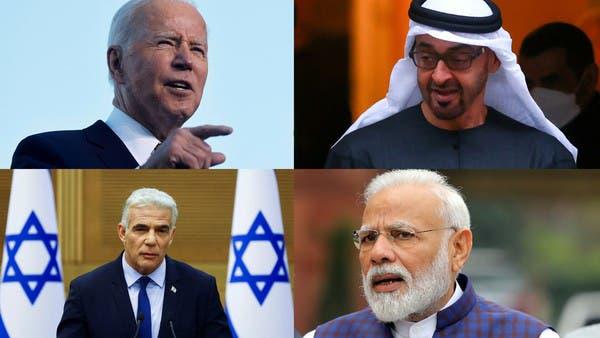Author: Prof. Engr. Zamir Ahmed Awan, Founding Chair GSRRA, Sinologist (ex-Diplomat), Editor, Analyst, Non-Resident Fellow of CCG (Center for China and Globalization). (E-mail: awanzamir@yahoo.com).
On July 14, 2022, the Heads of Government of India, Israel, the United Arab Emirates (UAE), and the United States, convened for the first leaders’ meeting of the “I2U2” Group.
This irrational grouping of countries aims to harness the vibrancy of our societies and entrepreneurial spirit to tackle some of the greatest challenges confronting our world, with a particular focus on joint investments and new initiatives in water, energy, transportation, space, health, and food security. It is worth mentioning that all these four countries have different interests and priorities, yet, formed an alliance.
On the surface, they intend to mobilize private sector capital and expertise to modernize infrastructure, advance low carbon development pathways for our industries, improve public health and access to vaccines, advance physical connectivity between countries in the Middle East region, jointly create new solutions for waste treatment, explore joint financing opportunities, connect our startups to I2U2 investments, and promote the development of critical emerging and green technologies, all while ensuring near- and long-term food and energy security. But it is to counter China’s mega initiative of Belt and road, commonly known as BRI.
They reaffirm support for the Abraham Accords and other peace and normalization arrangements with Israel, and welcome the economic opportunities that flow from these historic developments, including for the advancement of economic cooperation in the Middle East and South Asia, and in particular for the promotion of sustainable investment amongst the I2U2 partners. They also welcome other new groupings of countries, such as the Negev Forum for regional cooperation, that recognize the unique contributions of each partner country, including Israel’s ability to serve as an innovation hub connecting new partners and hemispheres to strategically address challenges that are too great for any one country to manage alone. The epic center of this alliance is revolving around the Jewish state of Israel. It is worth mentioning that, Israel has occupied Arab lands and has historic disputes with the Muslim world. Although, it got recognition from a few Muslim countries, but, condemned its brutal acts against the Muslim world generally.
The inaugural I2U2 leaders meeting focused on the food security crisis and clean energy.
The leaders discussed innovative ways to ensure longer-term, more diversified food production and food delivery systems that can better manage global food shocks. It appears nice on the surface, but, practically, may not be the same objectives.
The I2U2 leaders highlighted the following initiatives:-
Food Security:
The UAE – home to the International Renewable Energy Agency (IRENA) and host of COP28 in 2023 – will invest USD 2 billion to develop a series of integrated food parks across India that will incorporate state-of-the-art climate-smart technologies to reduce food waste and spoilage, conserve fresh water, and employ renewable energy sources.
India will provide appropriate land for the project and will facilitate farmers’ integration into the food parks.
U.S. and Israeli private sectors will be invited to lend their expertise and offer innovative solutions that contribute to the overall sustainability of the project. These investments will help maximize crop yields and, in turn, help tackle food insecurity in South Asia and the Middle East.
Clean Energy:
The I2U2 Group will advance a hybrid renewable energy project in India’s Gujarat State consisting of 300 megawatts (MW) of wind and solar capacity complemented by a battery energy storage system. The U.S. Trade and Development Agency funded a feasibility study for the $330 million USD project. UAE-based companies are exploring opportunities to serve as critical knowledge and investment partners. Israel and the United States intend to work with the UAE and India to highlight private sector opportunities. Indian companies are keen to participate in this project and contribute to India’s goal of achieving 500 GW of non-fossil fuel capacity by 2030. Such projects have the potential to make India a global hub for alternate supply chains in the renewable energy sector.
The leaders expressed their determination to leverage well-established markets to build more innovative, inclusive, and science-based solutions to enhance food security and sustainable food systems.
The leaders also welcomed India’s interest in joining the United States, the UAE, and Israel in the Agriculture Innovation Mission for Climate initiative (AIM for Climate). They affirmed that these are only the first steps in a long-term strategic partnership to promote initiatives and investments that improve the movement of people and goods across hemispheres and increase sustainability and resilience through collaborative science and technology partnerships.
The new alliance has serious repercussions and may create new challenges in the region. As the few countries in this alliance have a track record of defaulting on the UN, violating human rights severely, and creating confrontation and wars in the region. Regional countries need to be vigilant and proactive in possible threats in advance. It might serve as a base for their activities in this region against adversaries, especially China and Russia.
(ASIA PACIFIC DAILY)
